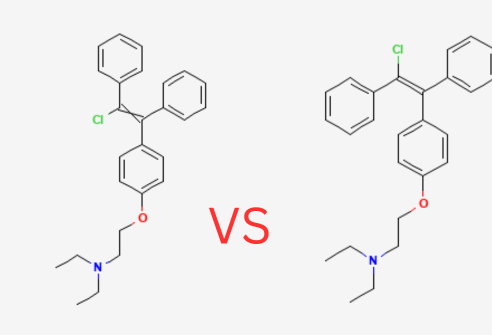Yes, low testosterone can potentially cause or contribute to headaches in men. Studies have shown a connection between low testosterone levels and an increased likelihood of experiencing chronic headaches, particularly migraines and cluster headaches.

Key Research Findings on Testosterone and Headaches
- Men with low testosterone are more prone to migraines and may experience more severe migraine attacks compared to men with normal testosterone levels.
- A 2021 study found that men suffering from chronic migraines or cluster headaches were more likely to report symptoms consistent with low testosterone than those without headache disorders.
- Research has shown that men with chronic migraines had significantly lower total testosterone levels compared to age-matched controls, with a median difference of 62 ng/dL.
These findings indicate that testosterone deficiency may contribute to headache disorders, making it an important factor to consider when evaluating chronic headache symptoms in men.
How Low Testosterone Contributes to Headaches
Low testosterone can contribute to headaches through several physiological mechanisms. Hormonal imbalances impact various bodily functions, some of which are directly linked to headache triggers.
1. Disruption of Neurotransmitter Balance
Testosterone plays a role in regulating neurotransmitters such as serotonin and dopamine, both of which are involved in pain perception and mood regulation. A decrease in testosterone levels can lead to an imbalance in these neurotransmitters, making individuals more susceptible to headaches and mood-related disorders such as anxiety and depression.
2. Increased Inflammation and Oxidative Stress
Low testosterone has been linked to higher levels of inflammation and oxidative stress in the body. Inflammatory cytokines are known to play a role in migraine pathophysiology. When testosterone levels are low, the body may have an increased inflammatory response, potentially leading to more frequent or severe headaches.
3. Sleep Disturbances
Testosterone deficiency is often associated with poor sleep quality, insomnia, and sleep apnea. Since sleep deprivation is a well-known trigger for migraines and cluster headaches, low testosterone could indirectly increase the frequency and intensity of headaches through its effects on sleep patterns.
4. Heightened Stress Levels
Chronic stress is another common trigger for headaches, and low testosterone is linked to higher cortisol levels (the primary stress hormone). Elevated cortisol levels can worsen headaches by increasing tension and disrupting hormonal equilibrium in the body.
Testosterone Replacement Therapy (TRT) and Headache Relief
Given the connection between low testosterone and headaches, some men may benefit from testosterone replacement therapy (TRT). Research has suggested that TRT can help reduce headache frequency and severity in some individuals.
Studies on TRT and Headaches
- Men receiving testosterone therapy reported fewer migraines and cluster headaches, with some experiencing complete resolution of symptoms.
- Improved sleep quality with TRT may also contribute to headache relief, as better sleep can reduce headache triggers.
- Restoring hormonal balance through TRT can help regulate neurotransmitters and reduce inflammatory markers that contribute to headaches.
However, TRT is not a universal solution. Not all men with headaches will benefit from testosterone therapy, and treatment should always be guided by a healthcare provider. Monitoring hormone levels through blood tests is crucial before starting any hormone replacement therapy.
Other Factors That Contribute to Headaches
While low testosterone can be a contributing factor to headaches, it is not always the sole cause. Other lifestyle and health-related factors should also be considered:
1. Stress and Anxiety
Chronic stress can lead to tension headaches and migraines. Implementing stress management techniques such as meditation, exercise, and deep breathing exercises may help reduce headache frequency.
2. Sleep Deprivation
Lack of quality sleep is a well-known headache trigger. Addressing sleep disturbances, whether through lifestyle changes or medical intervention, can significantly improve headache symptoms.
3. Diet and Hydration
Certain foods and dehydration can trigger headaches. Avoiding processed foods, alcohol, excessive caffeine, and staying hydrated can help manage headache occurrences.
4. Underlying Medical Conditions
Headaches can also be a symptom of underlying health conditions such as hypertension, diabetes, or neurological disorders. Seeking a medical evaluation is essential to rule out other possible causes of chronic headaches.
When to Seek Medical Help
If you are experiencing frequent headaches along with symptoms of low testosterone, such as:
- Fatigue and low energy levels
- Reduced muscle mass and strength
- Decreased libido or sexual dysfunction
- Mood swings, anxiety, or depression
- Sleep disturbances
It may be beneficial to consult a healthcare provider for a comprehensive evaluation. A simple blood test can determine testosterone levels and guide potential treatment options.
Conclusion
Research suggests that low testosterone may play a role in the occurrence and severity of headaches in men, particularly migraines and cluster headaches. Through mechanisms such as neurotransmitter disruption, increased inflammation, sleep disturbances, and heightened stress, testosterone deficiency can contribute to more frequent and severe headaches.
For men with both low testosterone and chronic headaches, testosterone replacement therapy (TRT) has shown promise in alleviating symptoms in some cases. However, TRT is not a one-size-fits-all solution, and other lifestyle factors such as stress management, sleep quality, and diet should also be considered.
If you suspect that low testosterone may be contributing to your headaches, consulting with a healthcare professional can help determine the best course of action, whether through hormone therapy, lifestyle modifications, or other medical interventions.



